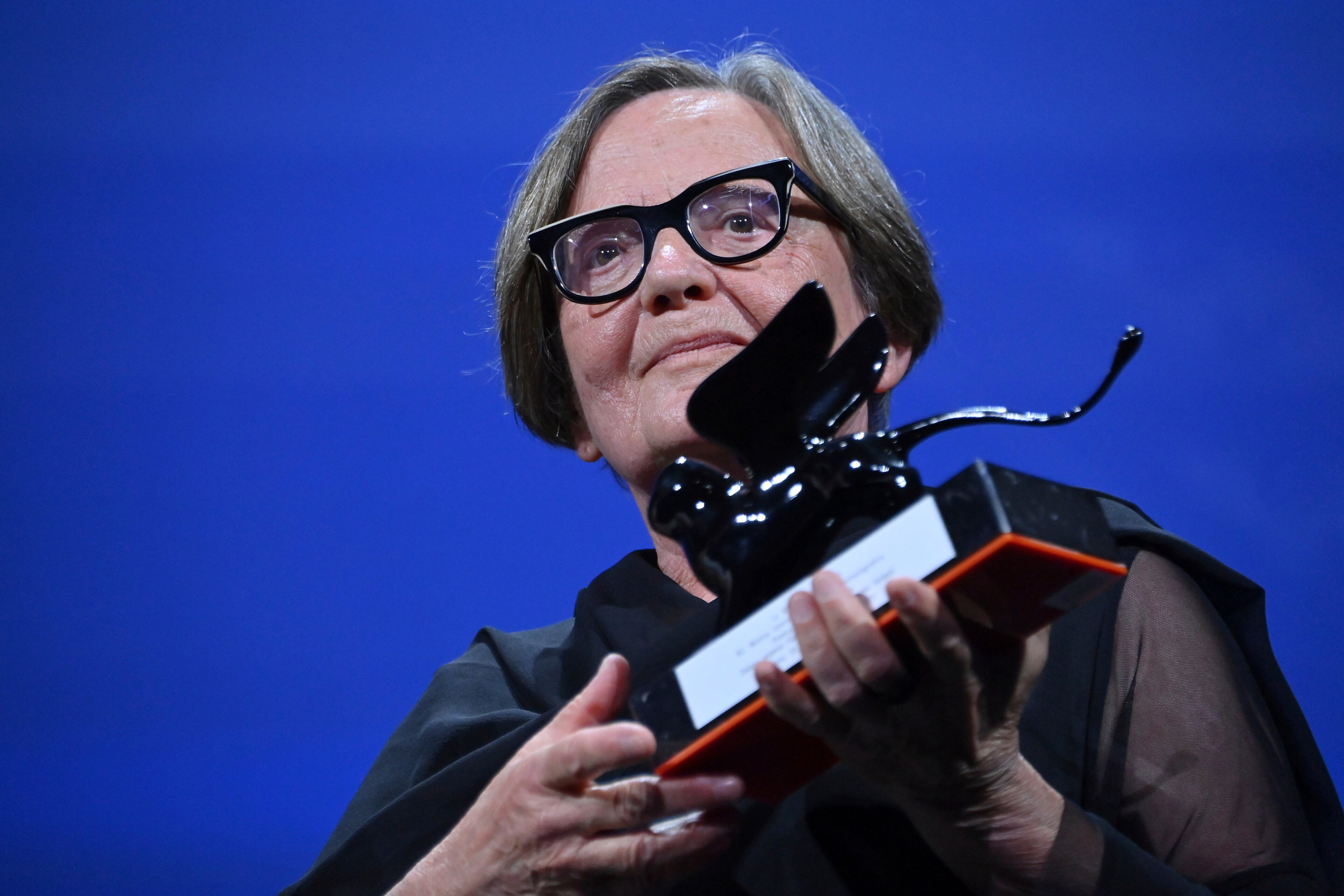Director of migration drama denounced by right-wing leaders as film opens in Poland
Poland's right-wing leaders have amplified their denunciations of a new feature film by Polish director Agnieszka Holland before its premiere in the country

Right-wing Polish leaders amplified their denunciations of a new feature film by director Agnieszka Holland before its scheduled premiere in the country Friday, accusing the work of defaming Poland with its exploration of a migration crisis along the border with Belarus.
“Green Border” won the Special Jury Prize at the Venice Film Festival earlier this month. Government officials in Poland have harshly criticized the film for weeks, although most of them acknowledge not having seen it.
Holland was born in Poland and worked on films there but lives in France. “Green Border” is a harrowing exploration of human suffering in the border zone of forests and swamps between Belarus and Poland, and its fictional characters include depictions of Polish security officials mistreating migrants from the Middle East.
In an unusual move, Poland’s most powerful politician, Jaroslaw Kaczynski, called a press conference Friday devoted to denouncing the film. He said he believed that Poland's border guards, army and police “were portrayed shamefully."
Polish officials say security personnel have risked their lives to protect Poland from an attack they view as directed by Russian President Vladimir Putin. Kaczynski accused Holland of acting in support of Putin’s alleged plan.
He also accused Holland of “oikophobia,” an aversion to one’s own homeland, and called the film “simply shameful, repulsive and disgusting.”
Holland argues that the film does not make any collective assessment of the Polish army or uniformed services, and that it is not intended to slander Poland.
She and producer Marcin Wierzchoslawski issued a statement Friday saying “Green Border” shows that all humans, whether uniformed officers, refugees or helpers, can behave in different ways in different situations. They said it simply avoids the “black and white propaganda” that surrounds migration.
Holland and Wierzchoslawski also said that fragments of the film were stolen, altered and broadcast by some media to create a distorted impression of the film, and that they objected to the manipulation.
Poland has a national election scheduled for Oct. 15. Kaczynski's ruling Law and Justice party is trying to win a third term in power by stressing its anti-immigration policies. The government's reputation for keeping immigrants out of the country took a hit with a fraud scandal allegedly involving visas given out at Polish consulates in Asia and Africa in exchange for bribes.
Polish Justice Minister Zbigniew Ziobro has compared “Green Border” to Nazi propaganda. President Andrzej Duda picked up the Nazi theme by saying Thursday that some border guards were highlighting their refusal to see the film by using the World War II expression “only pigs sit in the cinema.”
That expression referred to people during the German Nazi occupation of Poland who went to movie theaters to watch Nazi propaganda.
Holland has threatened to sue Ziobro. Her father was Jewish, and his parents died in the Holocaust. Her mother was a Roman Catholic who took part in the Polish resistance against the Nazi occupation.
She said the comparison to Nazi propaganda was offensive because of what Poland suffered during the World War II occupation and given her own family background.
The officials' heavy-handed approach to Holland's film is opening the governing party up to accusations of trying to censor free expression.
The Interior Ministry said this week that it was telling art house cinemas in Poland that get state support that they must run a clip ahead of “Green Border” showings that promote the border guards to counter what the deputy interior minister called “untruths and distortions.”
While the characters are fictional, the film tells the story of a crisis that has played out at the Poland-Belarus border for more than two years as migrants from the Middle East and Africa have sought to enter the European Union without authorization.
Polish border guards have pushed migrants back over the border into Belarus or put them in closed detention centers, and some have died in the area of forests and swamps. Poland has also constructed a tall steel wall to keep them out.
The film looks at the situation by focusing on the stories of a Syrian family, a Polish border guard and Polish activists seeking to help the refugees.
European Union officials have accused Russia's ally Belarus of manufacturing a crisis at the border in an act of “hybrid warfare" by encouraging migrants from the Middle East and elsewhere to use the country's frontier with Poland to enter the EU.
The Directors Guild of America on Thursday joined other film industry groups in publicly coming to Holland's defense, saying it “champions creative expression through the art of filmmaking and decries the recent attacks" against her.
Bookmark popover
Removed from bookmarks